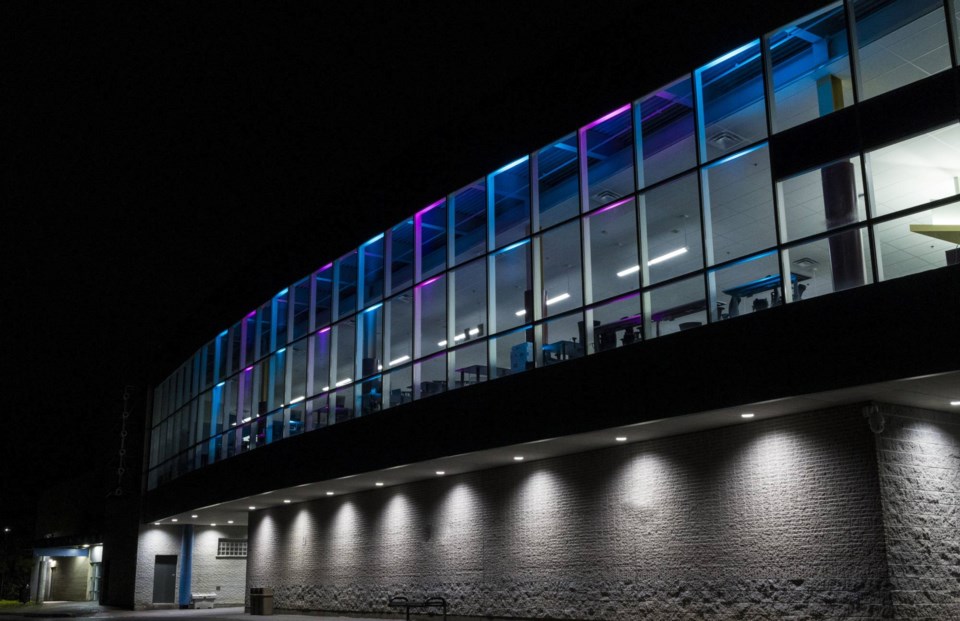Véronique Boyer faced discrimination at school and in the workplace many times.
Boyer said the most blatant incident was during a job interview early in her career. It had gone extremely well, and the employer set an orientation day for her before the interview ended.
But when Boyer stood up, that all changed.
“I have a different gait,” Boyer said. “The person asked, ‘Did you hurt yourself or something?’ I said, ‘No, no, it’s just that with my disabilities, I walk a little differently.’ And the person cancelled my orientation on the spot.”
What made the situation more egregious was that she had already held a similar position, and her gait was never an issue. Someone else’s incorrect perception of her abilities unjustly disqualified her for the job. Boyer said that moment of out-and-out discrimination was an experience that stayed with her for years.
“For a long time, I felt myself trying to hide my disabilities more and more. I didn’t want to disclose my disabilities before employment, that was for sure. Before, I felt empowered ... but that experience really shattered me.”
Today, Boyer helps prevent others from experiencing similar discriminatory acts.
As project manager for Inclusivity Works at Collège Boréal in Sudbury, Boyer raises awareness and educates employers directly to encourage safe, inclusive work environments. This program, funded through a Government of Canada Opportunities Fund for Persons with Disabilities grant, aims to “assist employers in diversifying their workplaces and creating professional environments that are both inclusive and accessible to people with disabilities and all other forms of diversity.”
“I’m grateful to be in the position that I am,” Boyer said. “I get to work on this amazing project to help employers create a good experience for their candidates and their employees so they hopefully never have to experience something like (that job interview).”
October is National Disability Employment Awareness Month (NDEAM) and organizations such as Inclusivity Works are helping encourage inclusive workspaces for people with disabilities.
On Oct. 17, 2024, businesses, structures, and landmarks across Canada will light their buildings blue and purple to “Light It Up! for NDEAM.” Those include Collège Boréal, March of Dimes Canada Employment Services, and the Ontario Government Building on Cedar St. in Sudbury, and City Hall, the Current River Dam, and the Ontario Government Building on Red River Road in Thunder Bay.
According to StatsCan, the number of people in the workforce who identify with a disability jumped to 27 per cent from 22 per cent between 2017 and 2022. That may be for a number of reasons including an aging population, more people identifying with a disability, and greater awareness around mental health, a non-visible disability.
Boyer said that although things are getting better, disability-based discrimination in the workplace is still an issue.
Social stigma and unconscious bias play large roles, and they can start before people even apply for work, she said. Job postings often use exclusionary language, perhaps unconsciously, which stop some from applying. In many cases, it means companies and organizations miss out on the best candidates — and not just when it comes to qualifications.
“Disability inclusion can drive growth, innovation, and competitive advantage for a company. There’s ample research that shows this,” said Jeannette Campbell, CEO of the Ontario Disability Employment Network (ODEN), in a news release.
J.C. Doyle, director of development and capacity building with ODEN, said that businesses are increasingly becoming aware of the many economic benefits of inclusion. Several recent studies by TD, Accenture, and others show that those benefits include access to a wider talent pool, higher retention rates of both those who identify having a disability and those who do not, fewer sick days taken, and improved customer experience when people engage with a more inclusive workforce.
“Businesses are becoming increasingly aware of the business case,” he said.
Doyle cited an LCBO hiring campaign for people with disabilities called “We Belong Here” for about 100 participating locations including seven in Sudbury, Timmins, Sault Ste. Marie, Thunder Bay, and Kenora.
ODEN supported the initiative by connecting them with employment service provider agencies, co-hosting webinars about LCBO opportunities and the application process, and consultation during the process. That successful pilot program is now integrated into the LCBO’s hiring practices, Doyle said.
“It’s where social justice and economics converge,” Doyle said. “We can demonstrate that by being inclusive of people with disabilities, you increase market share, and you have happier employees.”
However, “Education is key,” Boyer said. That’s why Inclusivity Works has partnered with several organizations including ODEN as well as Stride and NorQuest College to deliver virtual, facilitator-led information sessions. Some are general awareness sessions such as the upcoming “Building Bridges: Introduction to Diversity and Inclusion in the Workplace” while others are more targeted including “Building a Culture of Inclusion: Leadership Best Practices.”
Companies and individuals can participate in the sessions for free by registering with Inclusivity Works ahead of time through their Microsoft Form: https://forms.office.com/r/tcNn5hNRTT. Participants will then receive a coupon code to use when signing up for an event, which will bring the cost to zero.
Training tailored to companies or groups may be available as well upon request, Boyer said.
For more information, see linkedin.com/in/inclusivityworks or odenetwork.com.



